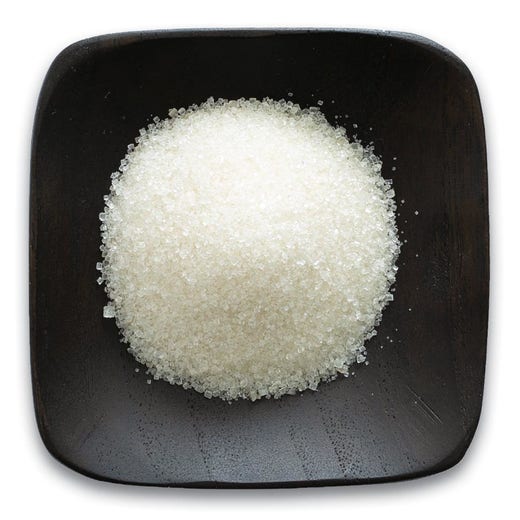An In-depth Summary of the Health And Wellness and Economic Implications of Cane Sugar Processing on Local Areas
Walking cane sugar handling plays a pivotal function in shaping the economic landscape of local communities, supplying employment opportunities and promoting secondary sectors. The wellness implications linked with high sugar intake can not be forgotten, as they contribute to increasing prices of weight problems and diabetes.
Economic Benefits of Cane Sugar Processing
Cane sugar processing provides significant economic benefits that extend beyond the prompt agricultural sector. The farming and processing of sugarcane create many job possibilities, from farming to manufacturing and circulation. This work generation not only sustains regional economies yet additionally cultivates neighborhood advancement by providing secure revenue resources for family members.
Furthermore, the sugar market boosts ancillary organizations, consisting of transport, tools supply, and product packaging solutions (Cane Sugar Processing). As these sectors expand, they contribute to a much more durable economic structure, improving total community resilience. The export capacity of refined walking stick sugar better magnifies economic benefits, placing areas as affordable players in global markets
Financial investment in contemporary handling facilities can result in raised performance and performance, therefore decreasing waste and maximizing resource use. This shift not just benefits the regional economy yet likewise supports sustainability initiatives by lessening ecological effects.
Moreover, the income produced from cane sugar processing can be reinvested in regional infrastructure, education and learning, and medical care, promoting holistic neighborhood development. Overall, the financial benefits of walking cane sugar processing are complex, offering a foundation for withstanding prosperity in farming regions.
Health Threats Related To Sugar Consumption
Excessive sugar consumption postures considerable health threats that call for major focus. High consumption of added sugars, specifically from processed foods and beverages, has been connected to countless health and wellness complications. Among the most important worries is weight problems, as sweet diet regimens add to a raised caloric consumption without providing crucial nutrients. This excess can cause metabolic disorders, including type 2 diabetes mellitus, which has actually ended up being significantly prevalent in both youngsters and adults - Cane Sugar Processing.
Moreover, high sugar usage is associated with cardio illness. Raised blood glucose degrees can cause insulin resistance, a forerunner to numerous heart-related problems. Additionally, sugar can have damaging effects on oral health, causing dental caries and gum condition, as germs in the mouth prosper on sugar, creating acids that deteriorate tooth enamel.
Furthermore, emerging study suggests a prospective link in between high sugar consumption and mental health disorders, such as depression and stress and anxiety. As communities grapple with these health and wellness risks, it ends up being important to advertise recognition and urge healthier dietary options. Dealing with sugar intake is essential not only for private health and wellness however additionally for the general wellness of regional neighborhoods, highlighting the need for extensive public health and wellness approaches.
Ecological Effects of Sugar Manufacturing
Frequently overlooked in conversations regarding sugar's effects is the substantial environmental influence of sugar manufacturing. The farming of sugarcane typically demands substantial land use, leading to deforestation, loss of biodiversity, and disturbance of local environments. The conversion of woodlands and marshes right into sugar ranches can cause habitat devastation, threatening many species and changing environmental equilibrium.
Furthermore, sugar production is resource-intensive, consuming considerable amounts of water for watering. This can result in deficiency of regional water sources, adversely impacting both farming practices and area accessibility to clean water. Furthermore, the usage of chemical plant foods and chemicals in sugarcane farming can add to soil deterioration and water contamination, as runoff from these chemicals goes into close-by rivers and lakes, influencing water life and human wellness.
The environmental impact encompasses the processing phase, where power consumption and waste generation further exacerbate eco-friendly problems. Air air pollution from melting sugarcane fields, along with greenhouse gas exhausts, add to climate modification. Because of this, the ecological effects of sugar manufacturing warrant major factor to consider, advising stakeholders to embrace even more lasting techniques to alleviate these negative results on neighborhood environments and communities.
Task Development and Neighborhood Growth
The look at this web-site environmental challenges postured by sugar manufacturing are often reversed by its possibility for economic advantages, particularly in work creation and community advancement. The walking stick sugar market functions as a significant source of employment in lots of backwoods, providing work throughout various skill levels, from agricultural labor to handling and circulation functions. This employment not just supports individual family members however likewise adds to the total financial vigor of neighborhood communities.
Furthermore, the establishment of sugar handling centers boosts ancillary organizations, such as transportation solutions, equipment supply, and upkeep carriers. As these businesses grow, they develop extra jobs and bolster local economies. The income created from the sugar sector additionally leads to increased tax obligation incomes, which can be reinvested right into social work such as education, medical care, and facilities development.
Furthermore, the sugar industry often engages in area advancement initiatives, such as supporting neighborhood colleges and wellness programs, thereby boosting the lifestyle for locals. By fostering solid community ties and promoting economic growth, the walking cane sugar handling field plays a vital role in uplifting regional populaces, making it a crucial part of sustainable development techniques in sugar-producing regions.
Balancing Health And Wellness and Economic Growth
In browsing the intricacies of walking cane sugar processing, an essential difficulty depends on stabilizing health considerations with economic development. The sugar industry considerably adds to neighborhood economic climates by generating tasks, stimulating related sectors, and enhancing tax obligation earnings. However, the health implications connected with extreme sugar usage can result in chronic illness such as excessive weight, diabetic issues, and cardiovascular concerns, which can concern public health and wellness systems and diminish labor force productivity.

In addition, regulative frameworks can play a critical function in leading industry practices in the direction of more health-conscious and lasting strategies. By cultivating collaboration in between government bodies, health and wellness organizations, and the sugar market, communities can browse the duality of health and economic development, making sure that the benefits of cane sugar processing are equitably shared while focusing on public health and wellness.
Verdict
In verdict, the handling of walking click here to find out more stick sugar presents both substantial financial benefits and remarkable health threats for neighborhood neighborhoods. While it fosters work development and promotes regional growth, the associated health and wellness concerns, especially concerning excessive weight and diabetic issues, require a careful harmonizing act. By promoting accountable usage and investing in area education and lasting methods, it is feasible to take full advantage of economic benefits while minimizing damaging health impacts, thus guaranteeing a healthier future for regional populaces.
In addition, sugar can have harmful effects on oral health, resulting in tooth cavities and gum tissue condition, as bacteria in the mouth grow on sugar, generating acids that erode tooth enamel.
Attending to sugar visit homepage usage is important not just for specific health and wellness yet also for the overall well-being of regional neighborhoods, highlighting the demand for detailed public wellness methods.
Frequently ignored in conversations regarding sugar's implications is the substantial environmental influence of sugar production. The wellness implications connected with too much sugar intake can lead to chronic conditions such as weight problems, diabetes mellitus, and cardiovascular problems, which can burden public health and wellness systems and lessen labor force productivity.

Comments on “Cane Sugar Processing: From Area to Table-- A Step-by-Step Guide”